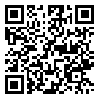1. American Psychiatric Association. Diagnostic and statistical manual of mental disorders: DSM–5. 5th ed. Washington, D.C: American Psychiatric Association; 2013.
2. Sadock BJ, Sadock VA, Ruiz P. Kaplan & Sadock’s synopsis of psychiatry: Behavioral sciences/clinical psychiatry. 11th ed. Rezaee F. (Persian translator). Tehran: Arjmand Pub; 2015, pp: 444–52.
3. Barkley RA. Attention-deficit/hyperactivity disorder and self-regulation: Taking an evolutionary perspective on executive functioning. In: Handbook of self-regulation: Research, theory, and applications. 3rd ed. New York: The Guilford Press; 2016. pp: 497–513.
4. Loe IM, Feldman HM. Academic and educational outcomes of children with ADHD. J Pediatr Psychol. 2007;32(6):643–54. [
DOI]
5. Mintern BE. Effects of environmental, maternal, and child factors on preschoolers' emotion regulation during a frustrating task [Ph.D. dissertation]. [Pennsylvania]: College of Education, The Pennsylvania State University; 2013. [
Article]
6. Graziano PA, Hart K. Beyond behavior modification: benefits of social-emotional/self-regulation training for preschoolers with behavior problems. J Sch Psychol. 2016;58:91–111. [
DOI]
7. Quinn PO, Stern JM, Russell N. The “Putting on the brakes” activity book for young people with ADHD. 4th ed. Alizadeh H. [Persian translator]. Tehran: Javaneh Roshd Pub; 2014, p:11.
8. Baumeister RF, Vohs KD, Tice DM. The strength model of self-control. Curr Dir Psychol Sci. 2007;16(6):351–5. [
DOI]
9. Alberts HJEM, Martijn C, Greb J, Merckelbach H, de Vries NK. Carrying on or giving in: the role of automatic processes in overcoming ego depletion. Br J Soc Psychol. 2007;46(Pt 2):383–99. [
DOI]
10. Delavar A. Educational and psychological research. 4th ed. Tehran: Virayesh Pub; 2015.
11. Kendall PC, Wilcox LE. Self-control in children: development of a rating scale. J Consult Clin Psychol. 1979;47(6):1020–9. [
DOI]
12. Hashemi malekshah S, Alizadeh H, Rezayi S, Asgari M. Development of physical-motor activities training package and evaluation of its efficacy on executive functions in children with attention deficit / hyperactivity disorder. Journal of Psychologicalscience. 2021;20(104):1279–94. [Persian] [
DOI]
13. Borjali M, Alizadeh H, Ahadi H, Farrokhi N, Sohrabi F, Mohamadhi M. A comparative study on three therapeutic programs including parent encouraging training, behavioral training and pharmacotherapy for increasing self-control among children with attention deficit hyperactive disorder. Clinical Psychology Studies. 2014;4(16):153–75. [Persian] [
Article]
14. Berkman ET. Self- regulation training. In: Vohs KD, Baumeister RF, editors. Handbook of self-regulation: research, theory, and applications. 3rd ed. London: The Guilford Press; 2016. pp: 440–57.
15. Muraven M, Slessareva E. Mechanisms of self-control failure: motivation and limited resources. Pers Soc Psychol Bull. 2003;29(7):894–906. [
DOI]
16. McCullough ME, Willoughby BLB. Religion, self-regulation, and self-control: Associations, explanations, and implications. Psychol Bull. 2009;135(1):69–93. [
DOI]
17. Alberts HJEM, Martijn C, de Vries NK. Fighting self-control failure: Overcoming ego depletion by increasing self-awareness. J Exp Soc Psychol. 2011;47(1):58–62. [
DOI]
18. Alberts HJEM, Martijn C, Greb J, Merckelbach H, de Vries NK. Carrying on or giving in: the role of automatic processes in overcoming ego depletion. Br J Soc Psychol. 2007;46(Pt 2):383–99. [
DOI]
19. Friese M, Messner C, Schaffner Y. Mindfulness meditation counteracts self-control depletion. Conscious Cogn. 2012;21(2):1016–22. [
DOI]
20. Ren J, Hu L, Zhang H, Huang Z. Implicit positive emotion counteracts ego depletion. Social Behavior and Personality: An International Journal. 2010;38(7):919–29. [
DOI]
21. Zou Z, Liu Y, Xie J, Huang X. Aerobic exercise as a potential way to improve self-control after ego-depletion in healthy female college students. Front Psychol. 2016;7:501. [
DOI]
22. Muraven M. Building self–control strength: Practicing self-control leads to improved self-control performance. J Exp Soc Psychol. 2010;46(2):465–8. [
DOI]
23. Gailliot MT, Baumeister RF, DeWall CN, Maner JK, Plant EA, Tice DM, et al. Self-control relies on glucose as a limited energy source: willpower is more than a metaphor. J Pers Soc Psychol. 2007;92(2):325–36. [
DOI]
24. Rivers AM. Self–regulation of implicit social cognition. In: Vohs KD, Baumeister RF, editors. Handbook of self-regulation: research, theory, and applications. 3rd ed. London: The Guilford Press; 2016. pp: 62–75.
25. Smith C. Theorizing religious effects among american adolescents. J Sci Study Relig. 2003;42(1):17–30. [
DOI]
26. Mashalpoor Fard M. The effects of spiritual intelligence training on resiliency in mothers of children with attention deficit/hyperactivity disorder. Journal of Exceptional Children. 2018;18(1):109–18. [Persian] [
Article]
27. Cairncross M, Miller CJ. The effectiveness of mindfulness-based therapies for ADHD: A meta-analytic review. J Atten Disord. 2020;24(5):627–43. [
DOI]
28. Mikami AY, Smit S, Khalis A. Social skills training and ADHD-what works? Curr Psychiatry Rep. 2017;19(12):93. [
DOI]
29. Isen AM. Some perspectives on positive feelings and emotions: Positive affect facilitates thinking and problem solving. In: Feelings and emotions: The Amsterdam symposium. New York: Cambridge University Press; 2004. pp: 263–81. [
DOI]
30. Merrill BM, Morrow AS, Altszuler AR, Macphee FL, Gnagy EM, Greiner AR, et al. Improving homework performance among children with ADHD: A randomized clinical trial. J Consult Clin Psychol. 2017;85(2):111–22. [
DOI]
31. Lange F, Eggert F. Sweet delusion. Glucose drinks fail to counteract ego depletion. Appetite. 2014;75:54–63. [
DOI]
32. Barnes CM, Schaubroeck J, Huth M, Ghumman S. Lack of sleep and unethical conduct. Organ Behav Hum Decis Process. 2011;115(2):169–80. [
DOI]


 ، حمید علیزاده2
، حمید علیزاده2 

 ، محمد عسگری3
، محمد عسگری3 

 ، سعید رضایی2
، سعید رضایی2 





